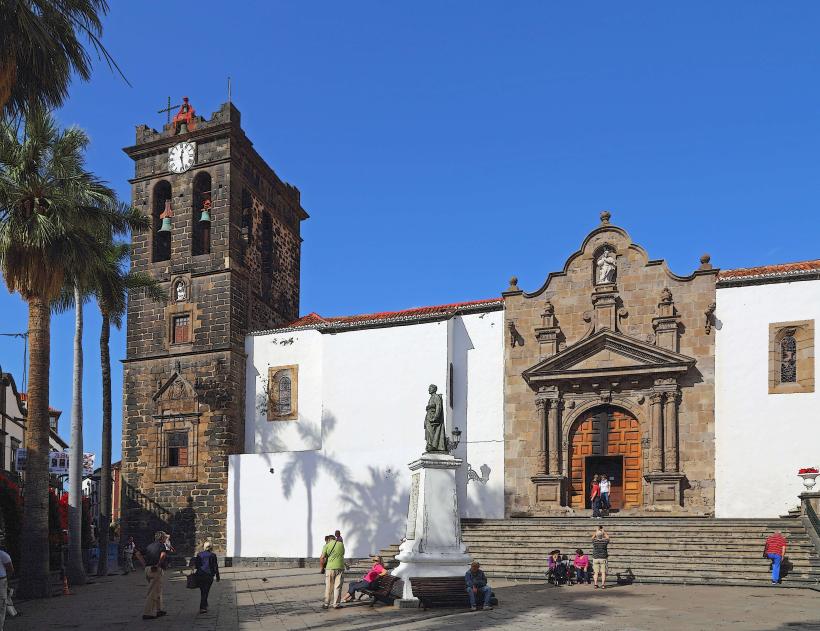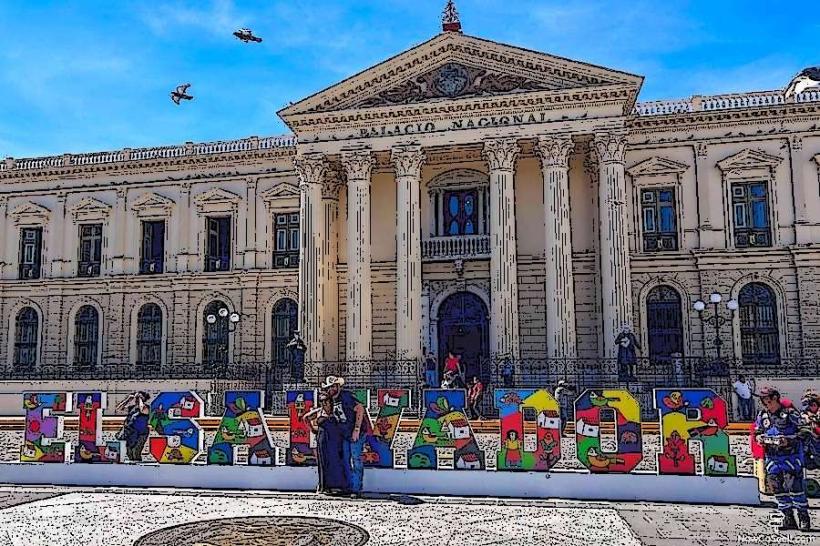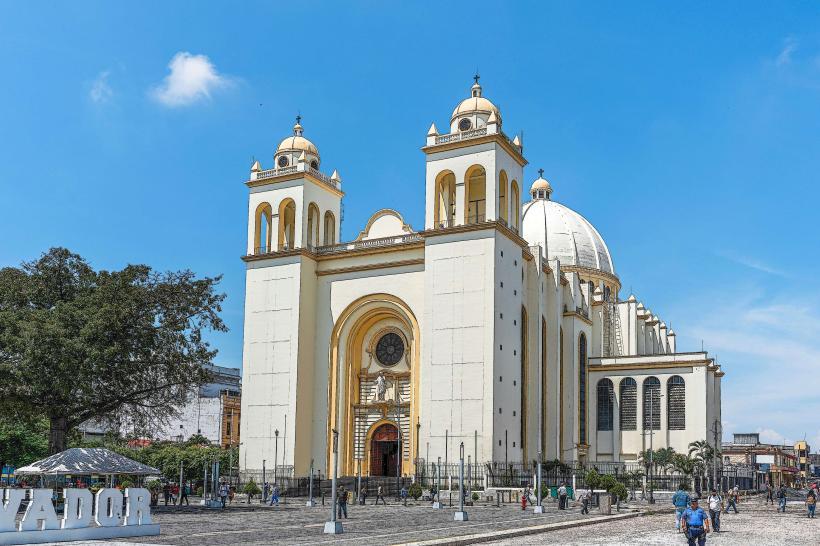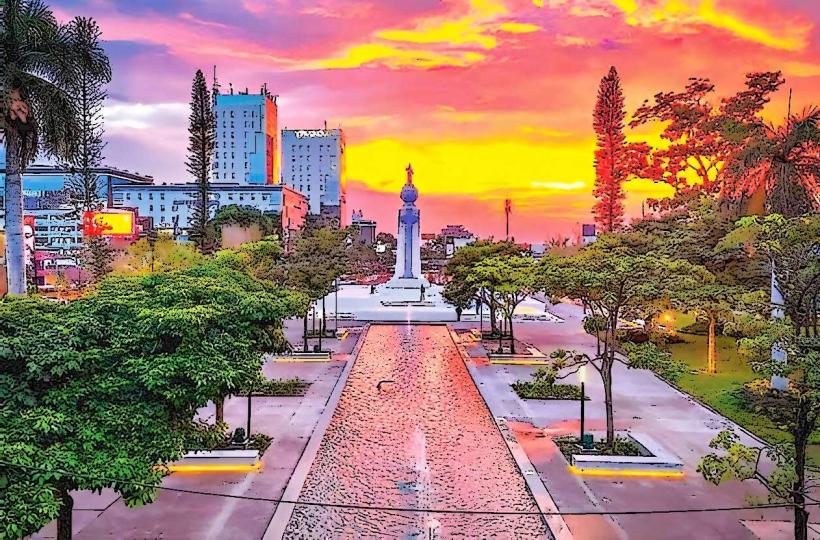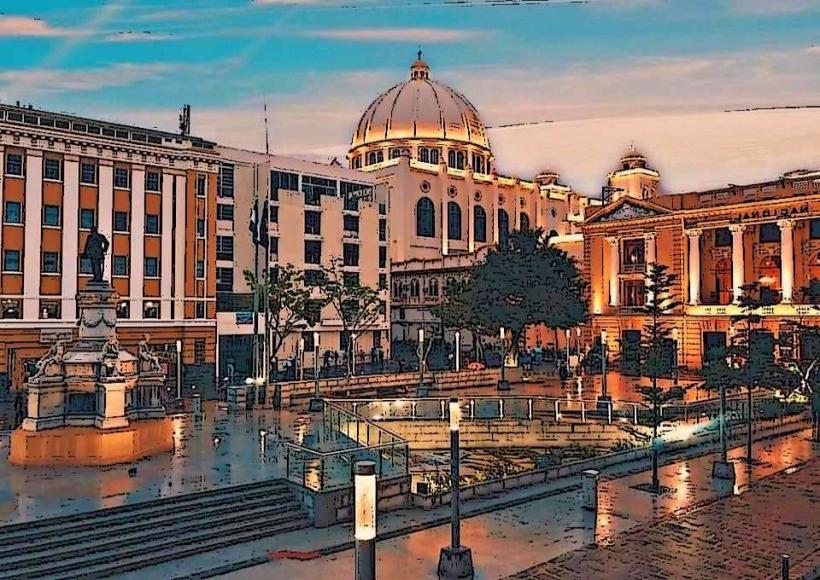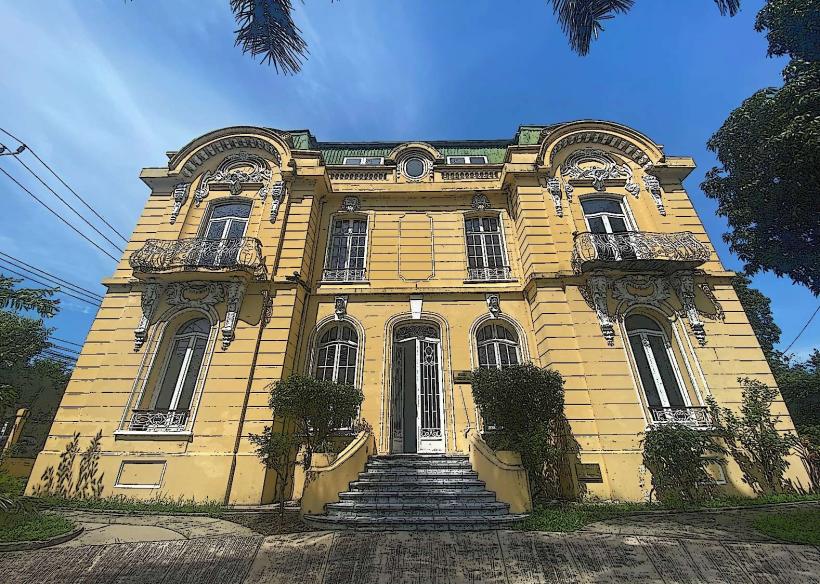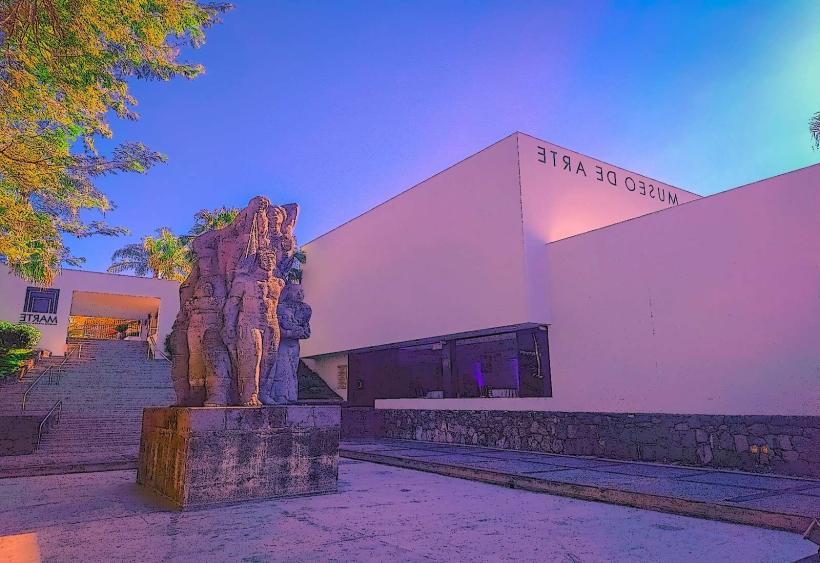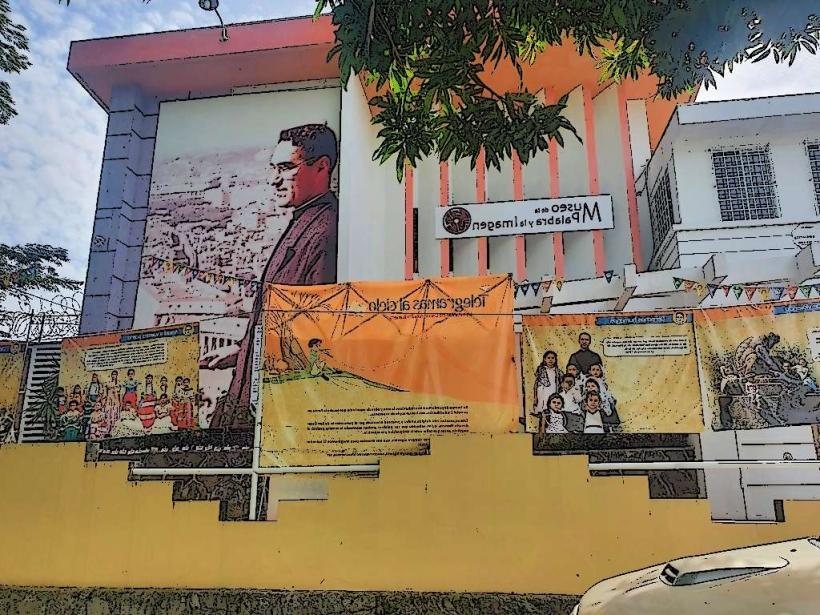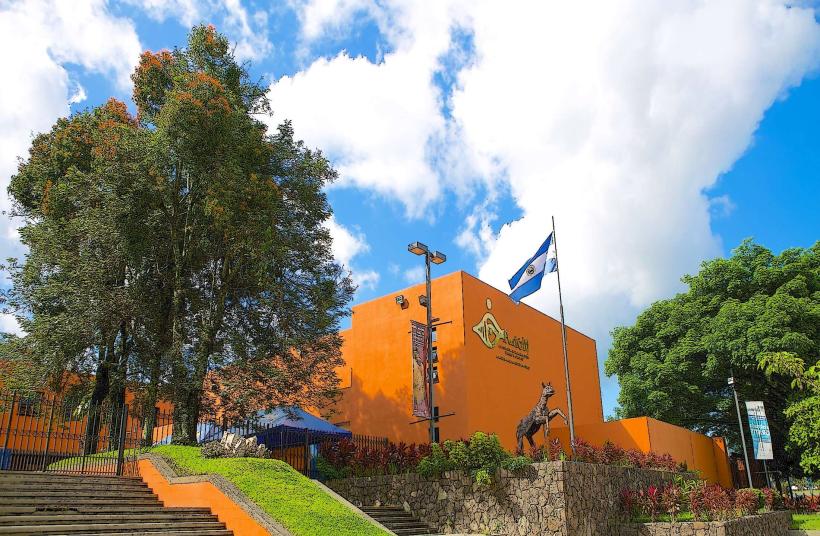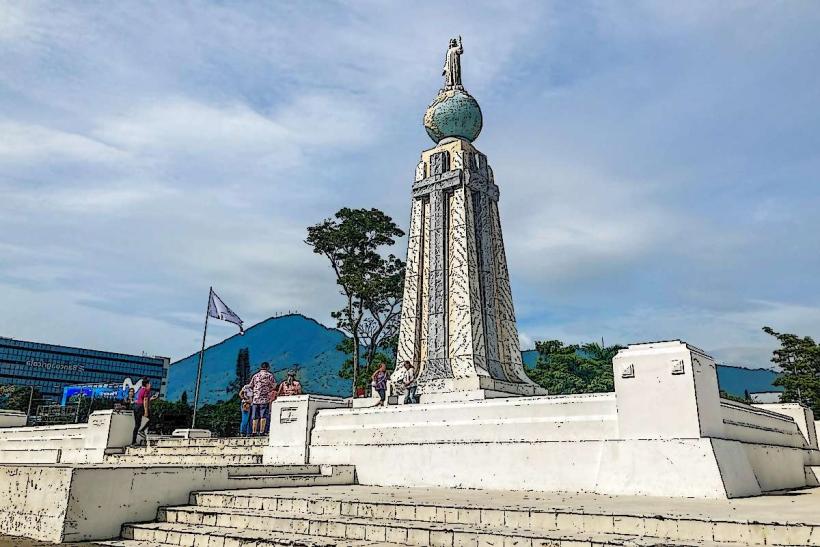Information
Landmark: Plaza LibertadCity: San Salvador
Country: El Salvador
Continent: North America
Plaza Libertad, San Salvador, El Salvador, North America
Plaza Libertad is a public square located in the historic center of San Salvador, El Salvador.
It serves as a central gathering space and a site of historical significance within the capital city.
Visual Characteristics
The plaza is paved with concrete and features a central monument, the Monumento a la Libertad, which is a tall obelisk. The perimeter is defined by sidewalks and surrounding buildings. Vegetation is limited to ornamental trees and shrubs planted around the edges and in planters.
Location & Access Logistics
Plaza Libertad is situated at the intersection of Calle Arce and Avenida 2a Sur, approximately 1km south of the city center. Access is directly from these main thoroughfares. Public parking is available in adjacent commercial lots and on-street parking is limited. Several bus lines, including routes 10, 27, and 34, stop within a 100-meter radius of the plaza.
Historical & Ecological Origin
The plaza was established in the late 19th century, with its current configuration largely dating from the early 20th century. It was designed as a civic space to commemorate national independence. The area is urbanized land, with no specific ecological origin.
Key Highlights & Activities
Visitors can observe the Monumento a la Libertad. The plaza is a site for public events and demonstrations. Walking through the plaza and observing the surrounding architecture are primary activities.
Infrastructure & Amenities
Restrooms are not directly within the plaza but are available in nearby commercial establishments. Shade is provided by mature trees along the perimeter. Cell phone signal (4G/5G) is generally available. Food vendors are typically present around the plaza, particularly during events.
Best Time to Visit
For photography, early morning (7:00 AM - 9:00 AM) offers softer light and fewer crowds. Late afternoon (4:00 PM - 6:00 PM) also provides favorable lighting. The plaza is accessible year-round; however, the dry season (November to April) generally offers more comfortable weather for outdoor activities.
Facts & Legends
The Monumento a la Libertad was inaugurated on September 15, 1911, to mark the 90th anniversary of El Salvador's independence. It is common for local vendors to sell traditional Salvadoran snacks and beverages in the plaza.
Nearby Landmarks
- 0.3km West: Catedral Metropolitana de San Salvador
- 0.5km North: Palacio Nacional
- 0.7km Northeast: Teatro Nacional de San Salvador
- 1.2km Southwest: Mercado Central

